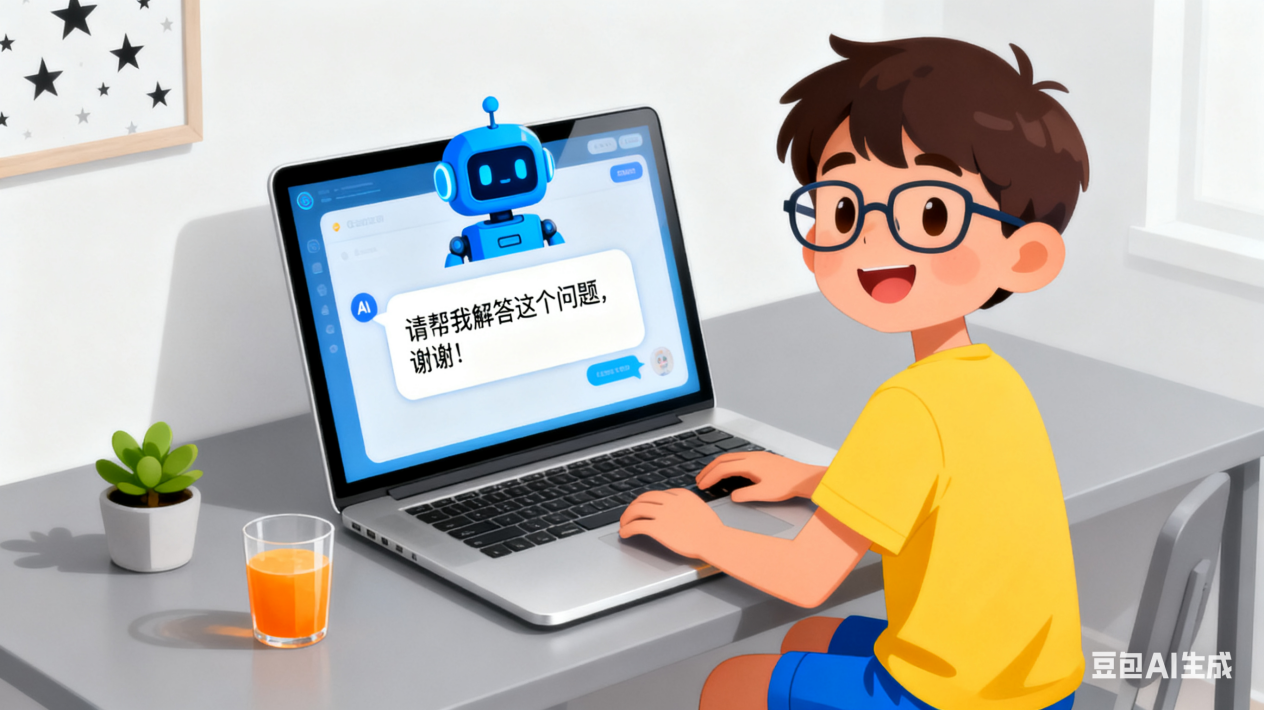
Artificial intelligence (AI) is quickly becoming part of everyday life. According to a survey, adults in the U.S. interact with AI several times a day. We wonder: Should people be polite to AI during these interactions? Should we say “please” and “thank you” to chatbots? Here’s what some kids say about it.
Aubrey Lamirault, 11
People should be polite to AI. Being polite isn’t just about being well-mannered. It can also lead to better results. AI systems learn from interacting with people. This means a person’s behavior influences AI’s responses. On the other hand, impolite or rushed prompts may lead to less-thorough answers.
Hanming Wang, 10
I don’t think people need to be polite to AI. It doesn’t have feelings. It’s just a tool, like a computer. Do you say “thank you” to your computer after you use it? Sometimes, using too many polite words can make it hard for AI to understand. For example, when someone uses AI to fix a paragraph with many mistakes and says, “Could you please make some small changes?”, the AI might only make very small fixes. In this case, being too polite hides how big the problems are. The AI won’t do what you really want it to do.
Ethan Yu, 12
I think we should be polite to AI, just like we are to other people. Our world needs more kindness, and when we practice it, whether toward people or technology, kindness can spread. Being polite to AI can help us become more thoughtful people. It’s a small choice, but it can make a big difference.
Asha Curley, 11
AI lets people be more efficient. But does AI really need to see the words “please” or “thank you” to give a response? No. But that doesn’t mean you should be rude to it. Being sensible about the use of AI holds more value than worrying about being polite to a machine. Let’s focus on using technology for efficiency.
原创编写 版权所有 侵权必究! 每日更新 个性化阅读 英语飙升!1.1. What does Aubrey say about being polite to AI?
A It improves response quality.
B It confuses the system.
C It is unnecessary.
D It makes AI faster.
解析:选A。A细节理解题。Aubrey在第二段中提到“It can also lead to better results...impolite or rushed prompts may lead to less-thorough answers”(礼貌能带来更好的结果……不礼貌或匆忙的提问可能导致答案不全面),由此可推断,他认为礼貌行为有助于提高AI回复的质量。故选A。
2.2. Why does Hanming disagree with being polite to AI?
A AI has real emotions.
B AI lacks human-like feelings.
C Politeness makes AI work slowly.
D AI learns bad manners.
解析:选B。B细节理解题。根据Hanming的观点“I don’t think people need to be polite to AI. It doesn’t have feelings. It’s just a tool...”(我认为人们不需要对AI礼貌,它没有感情,只是一个工具),可知他认为AI不具备类似人类的情感。故选B。
3.3. What can we infer from Ethan’s opinion?
A AI needs more kindness than people.
B Politeness to AI helps personal growth.
C People are usually rude to technology.
D AI itself can spread kindness to humans.
解析:选B。B 推理判断题。根据第四段Ethan的观点“Being polite to AI can help us become more thoughtful people”(对AI礼貌能帮助我们成为更体贴的人),可推断,“对 AI 礼貌有助于个人成长”。故选B。
4.4. Which word best describes Asha’s attitude toward being polite to AI?
A Supportive.
B Neutral.
C Enthusiastic.
D Unnecessary.
解析:选D。D 细节理解题。根据第五段Asha的观点“But does AI really need to see the words ‘please’ or ‘thank you’ to give a response? No.”,可知Asha认为对AI礼貌“没必要”。故选D。